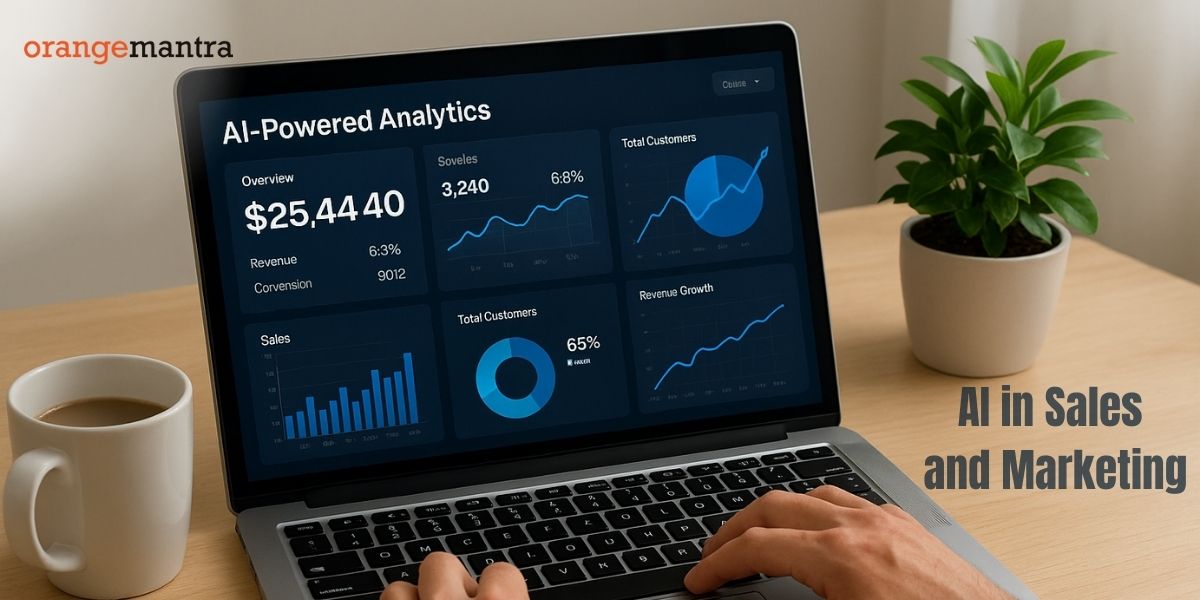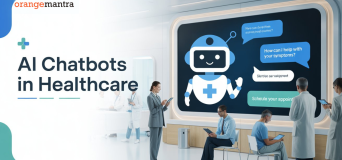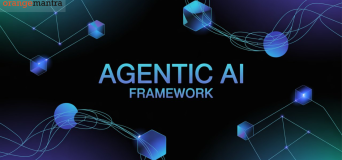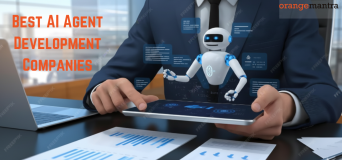
In sales and marketing, timing and relevance are everything. AI helps you nail both. This guide will tell you how you can make use of AI to pick up patterns you can’t see, learns from every customer interaction, and quietly push you toward the deals and campaigns.
For a couple of years now, “AI in sales and marketing” has been thrown around like a magic spell. Everyone talks about it, few know what it does, and even fewer can show numbers that prove it works.
AI is no longer a futuristic concept. You may be reading about it daily now. It’s already changing how companies find leads, close deals, and bring customers in a loop.
Many big companies are applying AI to very specific problems in their sales and marketing processes, measuring the impact, and improving over time.
In this guide, we’ll explore how businesses are leveraging AI development services to qualify leads more efficiently, personalize campaigns at scale, predict deal outcomes, and boost conversions.
Table of Contents
Key Data Points of AI in Marketing and Sales
- Research reveals that 83% of sales teams using AI reported revenue growth this year, compared to just 66% of teams not leveraging AI. [Source: Salesforce]
- MarketsandMarkets SalesPlay’s research shows that companies leveraging AI-powered deal intelligence achieve significant results, including a 35% shorter sales cycle, 28% larger deal sizes, and a 45% higher competitive win rate.
- Data proves that AI personalization delivers significant business benefits. Marketers report a 25% increase in ROI, while companies using AI-driven personalization see sales rise by approximately 20%.
- Businesses leveraging AI personalization achieve twice the customer engagement and up to 1.7 times higher conversion rates. Notably, fast-growing companies generate 40% more revenue from personalization than their competitors.
- McKinsey estimates generative AI could add $4.4 trillion to global productivity annually, with marketing/sales capturing 75% of this value. AI may boost marketing productivity by 5-15%, worth $463 billion per year.
Practical AI in Sales

Among many use cases of artificial intelligence in sales, let’s take a look at the three most popular ones, or we can say the three most useful ones.
Lead Scoring & Prioritization
Leads are the primary focus of marketing teams. The higher the lead quality, the better the chances of converting them into sales for the company’s products or services.
What if AI can help you here? Yes, it’s happening in corporate houses. AI ranks leads by their likelihood to convert, using patterns from your historical sales data.
Practical tip
As the first step in AI for lead generation, you can start with your CRM data and run it through AI-based scoring tools like Salesforce Einstein, HubSpot AI, or Zoho Zia.
If you want more flexibility, standalone tools like MadKudu or Infer can integrate with your existing CRM. Make sure you clean your data first.
Deal Closing Predictions
AI predicts the likelihood of closing a deal by analyzing call transcripts, email sentiment, proposal turnaround time, and customer engagement patterns. Plus, it flags deals that are slipping and highlights those with strong momentum.
Practical tip
Businesses can integrate AI analytics tools like Gong, Clari, or Outreach Insights to generate deal “health” scores. These tools can alert reps to take action before deals go cold, like scheduling a follow-up call when engagement drops.
Smart Follow-Ups
AI automates follow-up emails, LinkedIn messages, or SMS at the exact moment a prospect is most likely to respond. It monitors digital signals like when they open your proposal, click a link, or revisit your site and triggers outreach automatically.
Practical tip
Businesses looking to automate must use AI tools like Apollo.io, Outreach, or Salesloft that integrate with your CRM and calendar.
They should set rules so that when a lead re-engages (e.g., opens an email after two weeks), the AI sends a personalized message or schedules a call invite instantly.
Practical AI in Marketing
Now let’s move to another major talk of the time: how to use artificial intelligence in marketing.
Hyper-Personalized Campaigns
If you’re a Netflix, Amazon Prime, or YouTube user, you’ve definitely noticed how these platforms recommend content based on what you’ve watched before. And it’s not magic we are talking about here; it’s just clever ML algorithms studying your habits.
AI digs into customer behavior like browsing history, past purchases, email clicks, and even those late-night product searches to serve up hyper-relevant content and offers. This turns one-size-fits-all campaigns into one-to-one conversations at scale.
Practical tip
Use personalization engines like Dynamic Yield, Adobe Sensei, or Segment to customize landing pages, emails, and product recommendations in real time.
You can also test a quick personalized clip made with an AI video generator to see how tailored visuals affect engagement.
For your own business needs, you can also opt for custom AI development to create a personalized engine.
Predictive Campaign Testing
Instead of waiting until after launch to know if a campaign will work, AI models can predict performance based on historical data and audience behavior. This lets you test ideas virtually before spending on ads.
Practical tip
Feed past campaign data into tools like PaveAI, Pathmatics, or Marketo Predictive Content. Look for patterns in messaging, visuals, and channels that historically drive the best ROI.
Content Optimization
Generative AI Services reviews your ad copy, email subject lines, images, and calls-to-action to identify which variations will likely get the most clicks and conversions. It can also generate multiple content variations in minutes.
Practical tip
Businesses can use Jasper, Copy.ai, or Persado to create and A/B test copy variations. They can also opt for custom AI agent solutions and then pair them with analytics tools like Google Optimize or Optimizely to quickly iterate and improve performance.
How to Start Using AI in Sales and Marketing?
Before you jump into AI tools, check if your foundation is ready. Data is the foundation for AI.
Artificial intelligence is only as good as the data it learns from, so start with a data readiness audit. Make sure your CRM, marketing automation platform, and analytics tools are collecting accurate, clean, and consistent customer information.
Next, look for quick wins. These are AI tools you can start using right away without heavy integration. For example, AI email subject line generators, ad copy optimizers, or an AI agent for customer support. They deliver fast ROI while you plan for deeper AI adoption.
Finally, think long-term. This means exploring AI-driven CRMs, predictive lead scoring systems, or marketing attribution platforms that integrate across your tech stack.
Partnering with an expert AI development company can help you design custom solutions that align with your sales process, audience behavior, and business goals.
The key is to start small, learn from the results, and scale AI across your sales and marketing workflows as your team gets comfortable.
Conclusion
If you believe AI will replace salespeople and marketers, go ahead. Keep thinking that way. I won’t waste time changing your mind
I just know that by automating repetitive tasks, predicting buyer behavior, and surfacing the right opportunities at the right time, AI frees your team to focus on building relationships and closing deals.
If you’re ready to see what AI can do for your sales and marketing results, it’s time to go beyond theory. Start with a data audit, deploy a few good AI tools, and then design AI workflows that fit your unique business model.
Let’s build your AI sales engine together. Contact now.
FAQs
Q1. Is AI in sales and marketing only for big companies?
A: No. Many AI tools are affordable, cloud-based, and scalable. These qualities make them suitable for small and mid-sized businesses, too. You can start with specific use cases like lead scoring or automated follow-ups.
Q2. How long does it take to see results from AI adoption?
A: If you start with ready-made AI tools, you can see improvements within weeks. Custom AI solutions may take longer but deliver more tailored and scalable results.
Q3. What type of data is needed to make AI effective?
A: AI thrives on accurate & structured data such as CRM records, customer behavior logs, sales history, and engagement data to deliver accurate predictions and insights.
Q4. Can AI personalize marketing at scale?
A: Yes. AI can segment audiences, predict preferences, and send tailored messages to thousands of prospects simultaneously. This is something that would be impossible manually.




